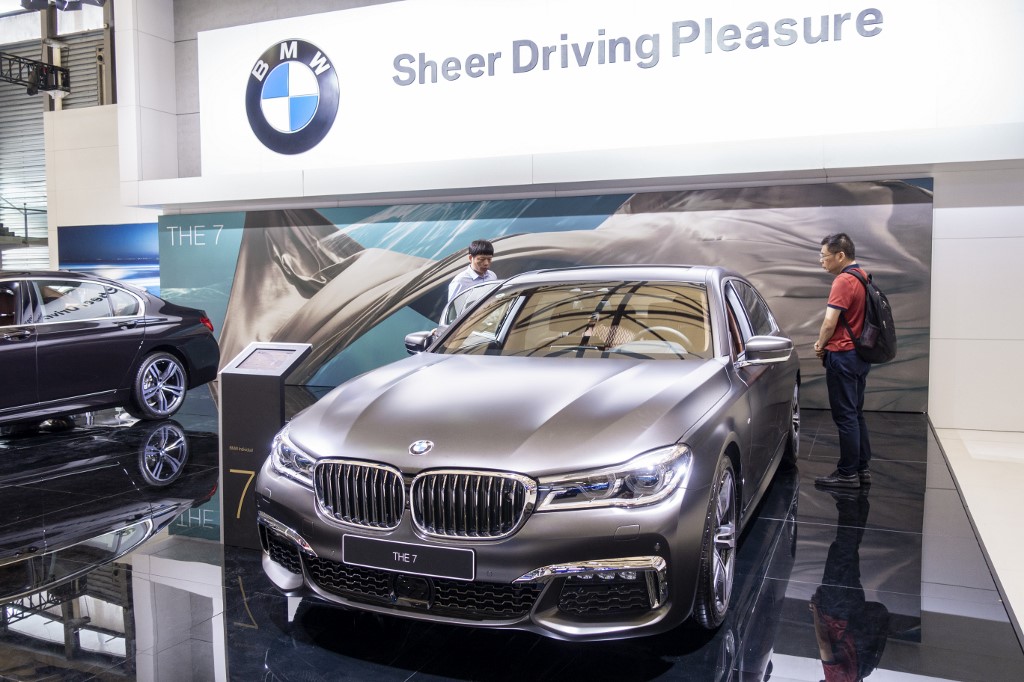Last month news emerged that the Chinese car giant Brilliance – a joint venture with BMW – had a massive bond debt-crisis and was facing bankruptcy. Now, there are reports of state investors wanting to privatise its Hong Kong-listed subsidiary Brilliance China.
Brilliance Group had debts of up to 120 billion yuan and creditor banks had set up a debt committee. Sina Technology said bankruptcy and reorganisation appeared inevitable.
The first part of that restructuring now appears to be taking shape.
State-backed investors are considering taking Brilliance China private, five people with knowledge of the matter have told Reuters, in another deal targeting beaten down Hong Kong-listed stocks.
The plan to privatise Brilliance China Automotive Holdings Ltd <1114.HK>, which has a current market value of $4.6 billion, would be led by state-controlled Liaoning Provincial Transportation Investment Group which already owns 12% of Brilliance, they said.
The privatisation would attract other Chinese state-backed investors and could kick off as soon as the fourth quarter of the year, two of the sources said.
Brilliance’s parent, Huachen Automotive Group, said it had not obtained any relevant information about the Transportation Investment Group considering such a move in regard to Brilliance.
Brilliance, Liaoning Transportation Investment Group, the provincial state asset regulator and BMW did not immediately respond to requests for comment, while the sources declined to be identified as the matter was confidential.
Based in Shenyang in northeastern Liaoning province, Brilliance is 30% owned by parent Huachen Group, which is majority-owned by the provincial state asset regulator.
The regulator supports the privatisation proposal and the Transportation Investment Group has talked to several banks for the deal financing, three of the people said.
Proud history
Established in the early 1990s, Brilliance Auto listed on the New York Stock Exchange as early as October 1992. It was China’s first domestic company to go to Wall Street to raise funds.
At that time, Brilliance Auto’s listing in the United States had great significance. It was a Chinese company going abroad and was seen as a flag-bearer of Chinese companies’ internationalisation.
However, after May 2002, Brilliance Automotive’s performance began to decline and it suffered losses year after year. In 2007, Brilliance Auto’s board of directors announced its decision to delist, cancel the American Depositary Shares (ADS) listed on the New York Stock Exchange, deposit the ADS in the company’s depository bank – the Bank of New York.
But the company’s listing on the Hong Kong main board was maintained.
At present, the overall group has six vehicle manufacturers, four listed companies – one which is Brilliance China, while the others are Shanghai Shenhua, Jinbei Auto, and Xinchen China Power, plus over 160 wholly-owned, holding and equity companies under its umbrella. These involve auto parts, auto finance, new energy and other fields, with total assets of more than 190 billion yuan.
Brilliance is also a joint venture partner with Germany’s BMW in China. BMW Brilliance accounts for 25% of the domestic luxury car market and has a high market position and brand influence.
But Brilliance’s main business – vehicle manufacturing and sales – has consistently underperformed in recent years, especially its own brands. Brilliance China and Brilliance Jinbei Renault are extremely weak.
Prospective investors believe Brilliance is undervalued in Hong Kong, the sources said recently, as the automaker is trading at 3.67 times expected earnings, way below the industry’s median multiple of 14.4, according to Refinitiv data.
Hong Kong’s market has also underperformed major peers, with the blue-chip Hang Seng Index down 16% as of Wednesday, compared with a 14% gain for China’s CSI 300. Brilliance shares have fallen 10% in the same period.
With reporting by Reuters
























